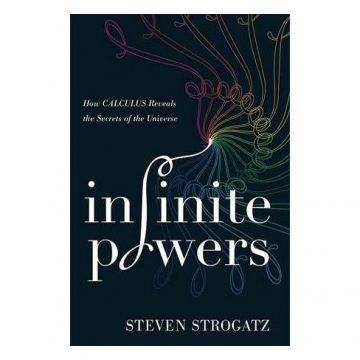 Michael J. Barany in the LA Review of Books:
Michael J. Barany in the LA Review of Books:
If calculus has turned you off, left you behind, shoed you away, or beaten you down, Steven Strogatz — a professor of applied mathematics at Cornell University — wants to help. (If you and calculus are on friendly terms, you will find much to learn and enjoy here, but you are not the target audience.) Strogatz is a specialist in the mathematics of chaotic interacting systems, the topic of his first crossover book, Sync (Hyperion, 2003). He followed with a mix of memoir and differential equations in The Calculus of Friendship (Princeton, 2009) and a New York Times series that grew into an exuberant mathematical primer, The Joy of X(Houghton Mifflin Harcourt, 2012). His latest, Infinite Powers, aims to explain the fundamental ideas of calculus, some of its history, and a few of its applications. Even those with no need or desire to do calculus, Strogatz contends, should be able to appreciate it.
When modern calculus debuted in the late 17th century, only a handful of people could claim to understand it well. In the 18th century, scientists and philosophers came to see it as both a powerful tool for reasoning and a way of marking the bounds of rational inquiry: a rational scientific question was, by definition, one that could be addressed with calculus. In the 19th century, it became the foundation of science and engineering education. We now live in a scientific and technological age made by those who learned, with great effort, to see the world through calculus-tinted glasses.
So it is no wonder that people like Strogatz, highly trained to see calculus all around them, can conjure wonder and excitement at the wages of calculus in the world.
More here.
